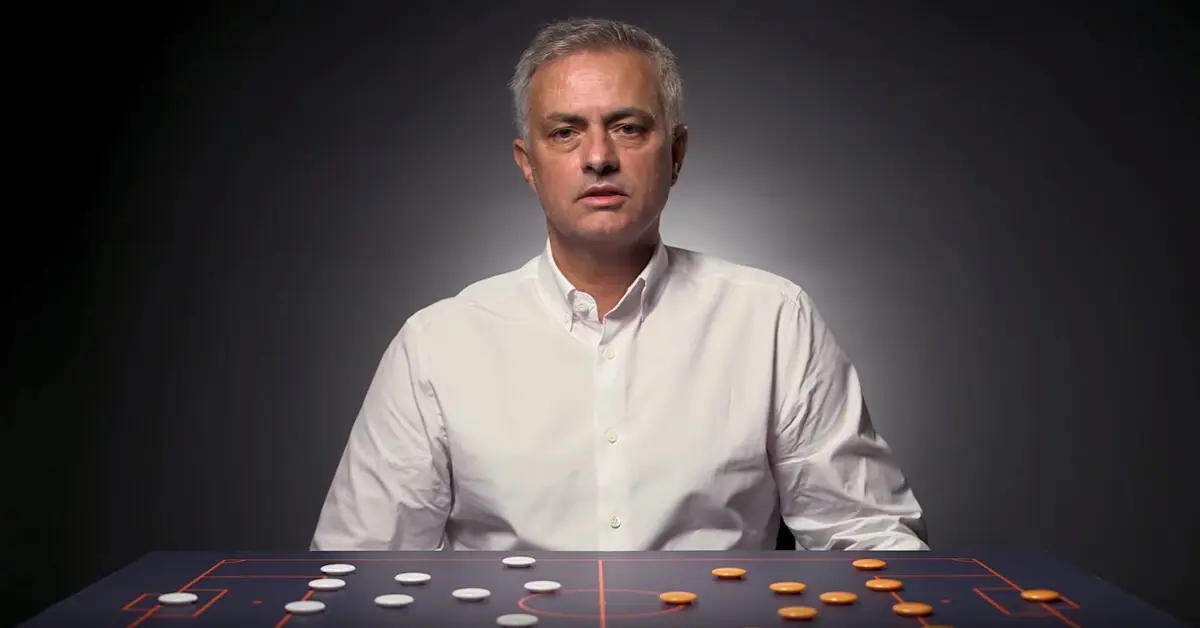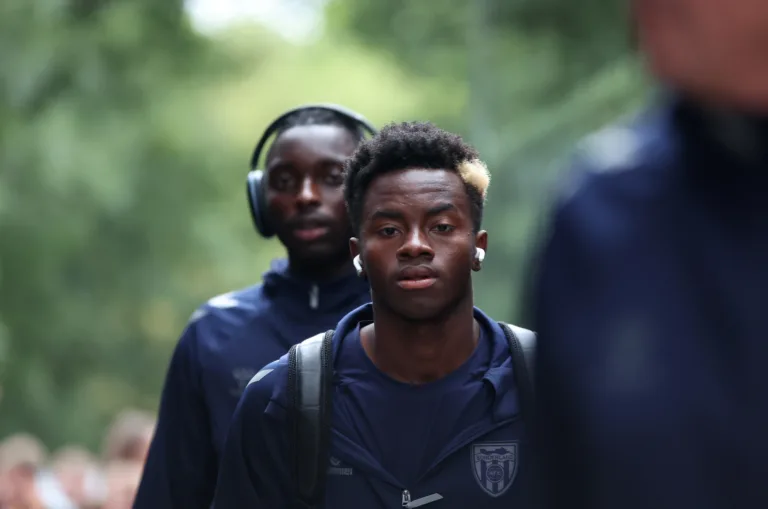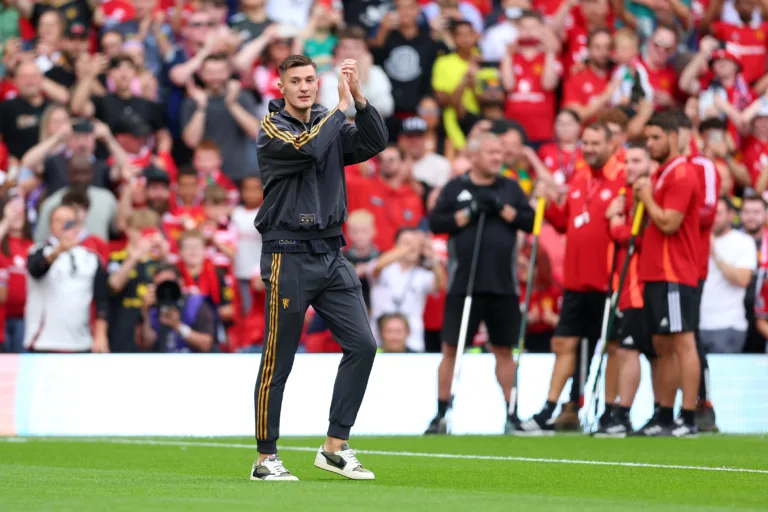Football Tacticos and the Death of Football Conversation
“You see, they’re in a 3-2-5 in possession, inverted full-backs creating the box midfield. But out of possession, it’s more of a 4-2-2-2, with the wingers engaging the second phase in a hybrid press.”
Now, read that again and ask yourself, what have you actually learned?
The rise of Football Tacticos – those self-styled tactical minds armed with chalkboards, a thesaurus, and nonsense buzzwords – has brought a certain prestige to football talk. But somewhere along the way, the conversation stopped being about the game and started being about how clever you could sounded online.
The Tactico’s Curse of Overcomplication
Let’s get one thing straight. Tactics matter. No one’s arguing that. But there’s a difference between genuine tactical insight and what’s happening now on Twitter, YouTube, and podcasts.
Half-spaces. Box midfields. Inverted full-backs. Positional superiority. Rest defence. Juego de posición. Circulator. Gamebreakers. Rest defence. Excessive verticality IP.

The problem isn’t the existence of these terms, it’s the way they’re used. More often than not, they’re wheeled out like weapons in an arms race of who can sound the most “in the know.” But ask these same people to explain why a team lost 3-0 at home to Man City, and you’ll get a 10-minute monologue on verticality instead of the simple truth: the centre-backs had a shocker, the keeper had a howler, and the midfield didn’t track runners.
It’s not analysis. It’s pseudointellectualism with a UEFA C badge.
Football Is Simple, And That’s Its Beauty
You know who rarely overcomplicates football? Actual footballers. Talk to a Sunday League centre-half or a retired pro on Sky Sports, and they’ll break down a game with clarity and plain language. “Didn’t get tight enough,” “too much space between the lines,” “didn’t fancy it today.” These aren’t empty clichés. They’re grounded, tangible explanations from people who’ve actually lived the game.
Footballers want to understand, and I’m quoting Fabian Delph here, “the basics” of what is wanted from them. In most dressing-rooms the white-board is plastered with arrows and shaded zones, yet the majority of professionals do not run onto the pitch muttering “block the half-space while we stagger the rest defence.” They want the gist in plain language: “show him outside,” “drop five yards,” “press when the trigger is hit.”
That clarity matters even more in squads where ten or more nationalities mingle; an Argentine No. 10, a French full-back and a Korean winger may share only phrase-book English, so jargon that already baffles native speakers is doubly useless. At Manchester City the coaching staff take Pep Guardiola’s positional-play vocabulary (for example, “third-man run,” “free man,” “rest defence”) and boil it down to short cues that survive translation for non-English speakers.
Liverpool did something similar under Jürgen Klopp. His assistants and senior players repeat the key ideas in Spanish and Portuguese so that Darwin Núñez and Luis Díaz do not miss the point, a necessity Núñez himself highlighted when he admitted,
“the truth is, I honestly don’t understand anything when he talks in meetings.”
Darwin Nunez on not understanding Klopp’s English and relying on team-mates
Marcelo Bielsa has long relied on full-time interpreters such as Salim Lamrani during video sessions at Leeds United so that his famously encyclopaedic lectures land in concise prompts for English-speaking players.
Of course, every squad also contains a sprinkling of football academics who enjoy the tactical detail. Joshua Kimmich is renowned in Germany for studying analysis pieces and discussing schematics with coaches on flights, a reflection of the high football IQ documented by the Bundesliga’s own technical profiles.
Giorgio Chiellini completed a master’s degree in Business Administration while still captaining Juventus, and İlkay Gündoğan has been taking sessions with Manchester City’s academy since 2022 as part of his long-term plan to coach, something Pep Guardiola has publicly encouraged. These thinkers are happy to dive into PDFs or video decks, but they are the ones who translate the manual so that team-mates can keep the instructions in their heads rather than on a clipboard.
But in a world where tactical clout brings likes and clout, simplicity is out of fashion. Instead, you get threads breaking down build-up patterns in a 0-0 draw that could’ve put a glass eye to sleep.
When Analysis Becomes Performance
Here’s the kicker, this new wave of Tactico culture isn’t really about football. It’s about performance. It’s cosplay for clout. It’s showing off to your followers that you read a Pep Guardiola biography and watched a couple of Thomas Tuchel pressers.
There’s a difference between explaining and performing. The first aims to help others understand the game better. The second is all about ego. It’s why you see phrases like “zone 14 ball receptions” when “he got the ball just outside the D” would do.
And let’s be honest, if you need a 45-slide PowerPoint to explain why Southampton are struggling, you’ve probably missed the point.
From Coaches to Copycats
It gets worse when the copycats roll in. Genuine coaches and analysts who work in the game use these terms because they’re functional within their own circles. But when this language filters into fan discourse, it loses all utility and becomes parody.
Take “rest defence” as an example. In coaching, it refers to how a team is structurally set up to counter an opposition counter-attack while they’re in possession. But scroll through social media and you’ll find people blaming poor “rest defence” for a set-piece goal. It’s lost all meaning.
And don’t get me started on “box midfield.” That’s just two midfielders staying narrow and two more pushing up wide. We used to call that “supporting from midfield.” Now it’s a “dynamic quadrilateral.” Ah no, now I’m getting outraged at the concept of a centre back inverting. It doesn’t make sense, how can a centre back move more central, stop making up rubbish terms to say that a centre back has pushed forward into midfield when in possession.
The Cost to Fan Culture
This isn’t just about semantics. It’s changing how fans talk about and experience football.
There’s pressure now to sound clever. To avoid saying things like “he was rubbish” or “they bottled it” because they don’t sound analytical enough. But sometimes, that’s exactly what happened. Your number ten didn’t lose because the opposition created a numerical overload in zone 13, he bottled a 1v1. How are you meant to have a conversation with someone when they start talking in scientific terms they learned in university physics lectures?
Carlo Ancelotti’s book Quiet Leadership is littered with examples of him favouring clarity over tactical overload. One notable line is a reference to Herb Kelleher’s quote
“Strategy, overdone; doing stuff, underdone.”
If a manager with five Champions League titles can look his players in the eye and say, “Keep it simple; the game belongs to you,” it begs the question: why are so many of us on Twitter breaking out the coloured arrows and 17-step positional-play threads? Ancelotti drills a tidy off-ball shape, hands creative licence to his match-winners and resists the urge to sound clever for its own sake, trusting that Modrić and Vinícius do not need a doctorate-level PDF to beat a low block.
That approach has delivered more silverware than most online “tacticos” have hot takes. Perhaps the real lesson is that clarity and humility trump theatrical theory, especially when history’s scoreboard is on your side.
Football was always best when it was about people. The way a winger roasted a full-back. The look on a manager’s face after a last-minute equaliser. The pub chat after full-time, where nothing was over-analysed, but everything was felt. You’re not going to talk to your mate at the pub about how Omar Marmoush operates in the half-space between causality and chaos. His velocity isn’t speed, it’s spatial entropy. He doesn’t run behind the defence; he quantum-leaps into unoccupied xThreat zones, disrupting vertical compactness and destabilising low-block temporal integrity. Your mate would reply look at you, dead eyed, and respond, “what”?
Not Everything Needs Explaining
There’s a danger in trying to intellectualise every corner of the game. Not everything in football needs to be explained within a tactical framework. Sometimes, it’s just chaos, I mean have you watched Man United under ten Hag? Sometimes, it’s luck. Sometimes, it’s vibes. That’s not a failure of analysis, it’s the very thing that makes the game worth watching.
And that’s the irony. In trying to make football feel more scientific, we’ve drained it of emotion. The spontaneity, the controversy, the personal brilliance, it’s been boxed in by diagrams and buzzwords. And in doing so, we’ve pushed away the people who love football for what it is, not for what it can be described as in a coaching seminar.
A Call for Clarity
This isn’t a rant against analysis. There’s value in understanding structure, shape, and decision-making. But it has to be rooted in reality, not fantasy. Football is not a PhD thesis. It’s a game of decisions, mistakes, and moments.
If we want better discourse, we need to ditch the performative jargon and bring the conversation back to the basics. Talk tactics by all means, but talk like a human, not a coaching textbook. Use terms that carry meaning, not ones that sound clever but say nothing. The best analysts simplify without dumbing down, using overcomplicated terms is for your own ego, not for teaching or helping people understand, you’re showing off.
Let’s remember that football, at its core, is a simple game, for the every day man. It’s only being overcomplicated by people who should probably know better.








